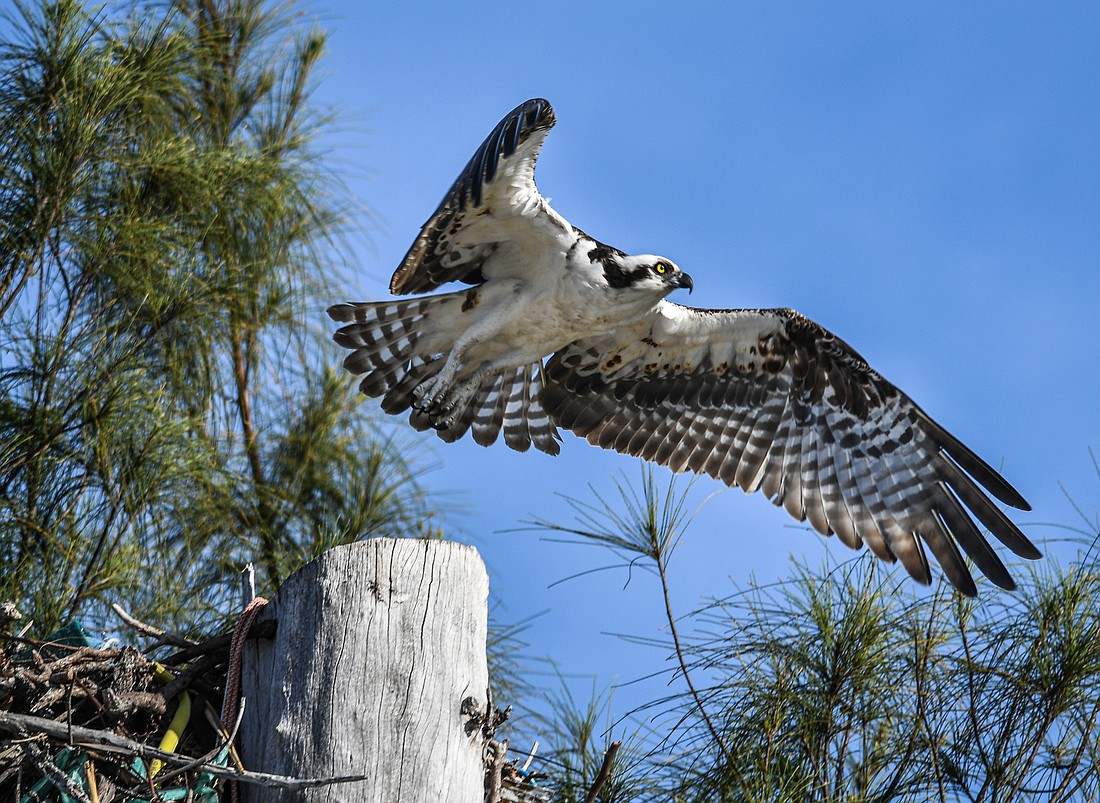- April 26, 2024
-
-
Loading

Loading

A magnificent bird of prey, ospreys can be spotted year-round in Florida. While some are full-time nesting residents, others winter here, or are migratory birds that are just passing through.
Ospreys are monogamous and mate for life, reusing their nests for generations. Vocal and demonstrative, they use a wide range of verbal and non-verbal behaviors. Indeed, a study of osprey behavior revealed eight distinctive vocalizations to express feelings, including excitement, alarm, and hunger and 11 physical displays to convey messages of courtship, protection, rest, and attack.
Osprey almost exclusively eat live fish. These aerial acrobats plunge up to three feet into the water to catch their prey. But, unlike other diving birds, they don't grab fish with their beaks. Detecting prey with their keen vision, they dive into water feet first, grabbing prey with their strong talons. A reversible fourth talon comes in handy for securing their slippery catch, as do rough scales on their feet. Once airborne, osprey often reposition fish so that the head faces forward, perhaps to improve aerodynamics.
A growing cause of death for ospreys is entanglement: If adults incorporate monofilament or other discarded non-natural twine into their nests, these can end up wrapped around chicks' feet, injuring or trapping them. And, as food specialists, with one main food source, a grave threat to our osprey populations is contamination of their aquatic ecosystems; our Sarasota waterways. As top predators, they're exposed to the highest concentrations of toxins (such as mercury) in our environment.
To protect these beautiful birds, who are key members of our ecosystem, we can keep toxins out of our waterways, and plastic litter, including twine and fishing-line, out of our environment.
Save our Seabirds is a non-profit organization whose mission is to rescue and rehabilitate sick and injured birds, releasing as many as they can, while educating our community about avoiding injuries and preserving habitats.